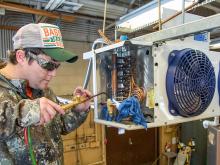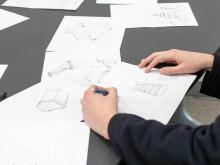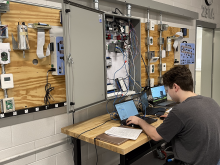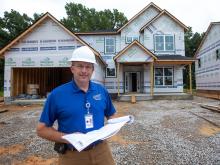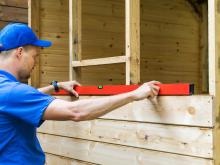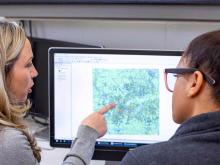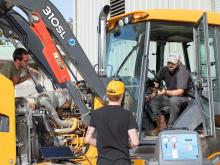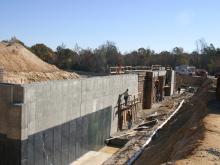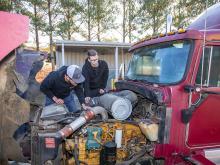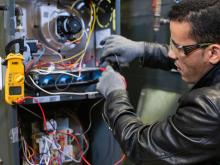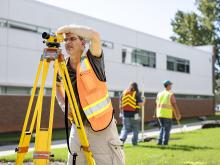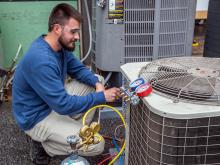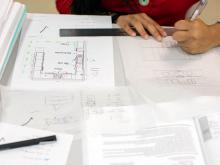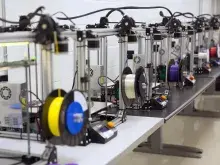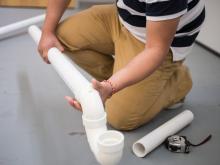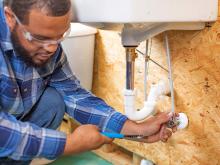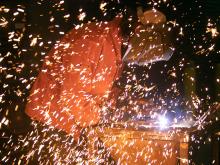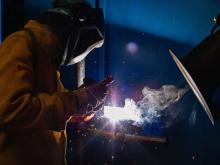Spring Semester Tuition Due
Don't lose your seat in Spring semester classes by not paying your tuition on time! Pay online, in person at the nearest campus or sign up for the Tuition Payment Plan.
2023 Careers Divisions Programs Menu
Construction & Maintenance
Plan, build, manage and maintain the places where people live, work and play.
Air Conditioning, Heating & Refrigeration Technology
Gain the knowledge and skills necessary to work with residential and light-commercial heating, air conditioning, ventilation and refrigeration systems.
Apartment & Facility Maintenance Technician
Non-Degree
Learn interior and exterior maintenance, electrical systems, plumbing, HVAC and appliance maintenance and repair to prepares for entry-level work in facility maintenance.
Architectural Technology
Become prepared to help architects, engineers and construction professionals develop plans and related documentation for residential and commercial projects.
Building Automation Technology
Learn how to make buildings as energy efficient as possible. The resulting energy savings has both environmental impacts and national security implications.
Building Code Inspection
Non-Degree
Get prepared to work in building, plumbing, electrical, mechanical and fire code inspection. Veteran inspectors can earn continuing education credits.
Carpentry & Construction
Non-Degree
Get training in on-the-job safety and basic blueprint reading and an understanding of hand and power tools and improve your basic math and measurement skills.
Civil Engineering Technology
Learn how to apply civil engineering design concepts to develop plans and related documentation for residential and commercial land development projects.
Collaborative Robotics
Non-Degree
Study the principles, uses, applications, operation and maintenance of collaborative robotics through hands-on training.
Construction Equipment Systems Technology
Gain the knowledge and skills needed to troubleshoot and repair systems in bulldozers, scrapers, loaders, forklifts and other construction equipment.
Construction Management Technology
Get trained to take on project management or related positions in the construction industry.
Diesel & Heavy Equipment Technology
Get the knowledge and skills needed to troubleshoot and repair medium- and heavy-duty vehicles.
Electrical Systems Technology
Learn how to install and maintain electrical systems found in residential, commercial and industrial facilities.
Electrical Wiring
Non-Degree
Learn how electrical circuits work, including maintenance and troubleshooting, as well as electrical components, distribution systems, the National Electrical Code and blueprint reading.
Facility Maintenance Technology
Learn how to repair and maintain electrical and mechanical systems and physical structures of commercial and industrial buildings.
Forklift Operations & Maintenance
Non-Degree
Become a Certified Forklift Operator and gain skills in gasoline and diesel engine repair, small engine repair and heavy equipment repair.
Geomatics Technology (Surveying)
Get trained in the many areas of surveying, from land, route and construction surveying to photogrammetry and mapping to global positioning systems and geographical information systems.
HVAC Technician
Non-Degree
Learn how to maintain heating and cooling systems for residential homes and businesses and prepare for an EPA certification exam.
Interior Design
Prepare yourself for a variety of job opportunities in both residential and non-residential interior design.
Manufacturing Production
Non-Degree
Learn 3D printing, mechanical troubleshooting and mechanical blueprint reading and become a certified production technician.
OSHA Training
Non-Degree
Learn OSHA safety requirements and standards for the construction industry and earn U.S. Department of Labor certification.
Plumbing
Acquire the basic skills to assist with the installation and repair of plumbing systems in residential and small commercial buildings.
Plumbing & Pipefitting
Non-Degree
Learn the basics of the plumbing and pipefitting trades and earn credit toward two years of apprenticeship training.
Welding
Non-Degree
Learn the principles and practices of welding, with an emphasis on processes and safety.
Welding Technology
Gain a sound understanding of the science, technology and applications essential to work in the welding and metal industry.
2023 Footer Column 1
2023 Footer Column 2
- Wake Tech Mobile App
- Help & Support
2023 Footer Column 3
- Connect
9101 Fayetteville Road, Raleigh, NC 27603
919-866-5000
919-866-5000
Translation
Wake Tech Community College | ©2025 All Rights Reserved.
Contact Us | Terms of Use | Privacy Policy | Campus Policies | Site Map
Contact Us | Terms of Use | Privacy Policy | Campus Policies | Site Map
